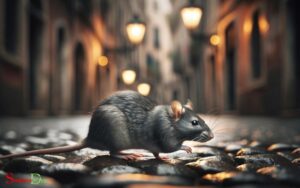What Is the Symbolic Meaning of a Black Cat? Mystery!
The symbolic meaning of a black cat varies by culture, often representing mystery, luck—both good and bad, and the supernatural.
In some places, they are cherished as symbols of good fortune and prosperity, while in others, they are associated with witchcraft and omens of bad luck.
The symbolism of black cats has evolved over time and differs around the world:
- Good Luck: In Britain and Japan, black cats are considered lucky.
- Protection: Sailors often kept black cats on ships for protection.
- Witchcraft: In medieval Europe, black cats were linked to witches and dark magic.
- Halloween: They are iconic in Halloween imagery, representing spookiness and the occult.
- Duality: Black cats symbolize the balance between opposites, like the yin and yang.
Black cats embody a dual nature, seen as harbingers of misfortune or beacons of prosperity, depending on cultural context.
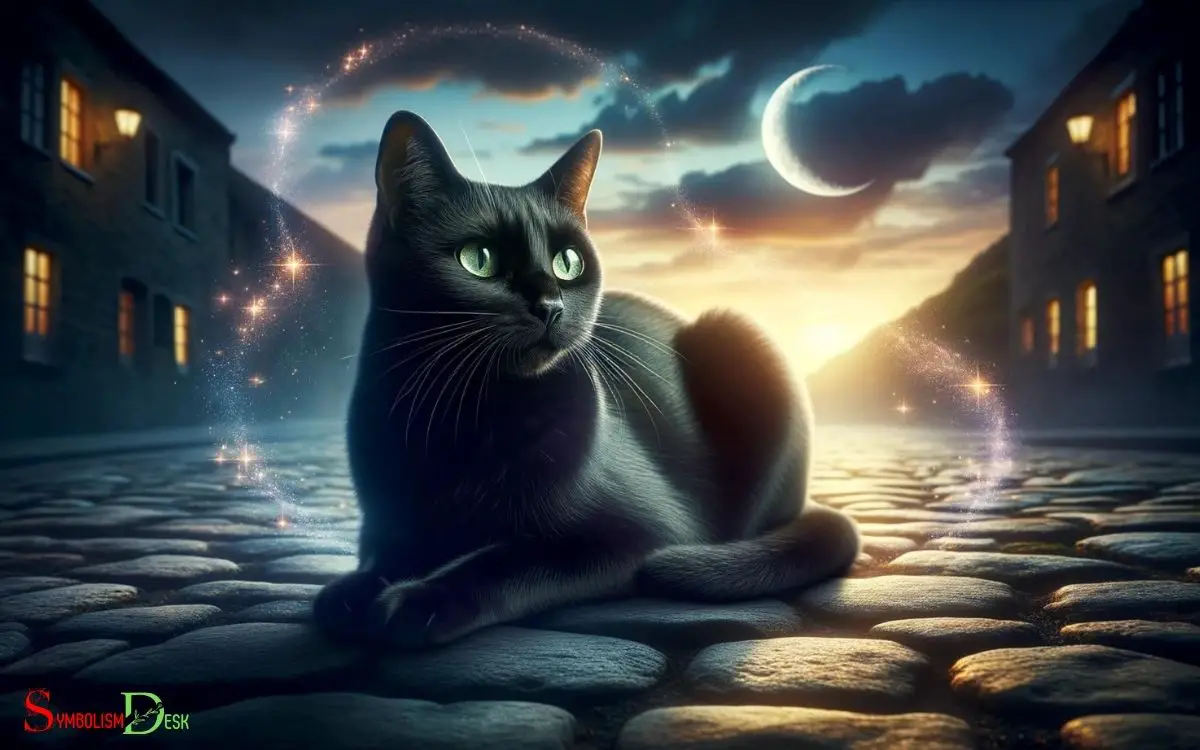
Key Takeaway
8 Cultures: Symbolic Meanings of a Black Cat
| Culture | Symbolic Meaning of a Black Cat |
|---|---|
| Western Cultures | Often associated with bad luck, witchcraft, and evil. |
| Scottish Folklore | An arrival of a strange black cat to home signifies prosperity. |
| Japanese Culture | Generally considered good luck, especially for women. They are believed to attract suitors. |
| Chinese Culture | Often symbolizes bad luck and are considered to bring misfortune. |
| Egyptian Culture | They are considered sacred and bring good luck. Ancient Egyptians believed that they could ward off evil spirits. |
| Pirates/Sailors | Mixed beliefs. A black cat walking towards someone is bad luck, a black cat walking away from someone brings good luck. |
| Celtic Mythology | They were believed to bring bad luck and were associated with the fairy world. |
| German Folklore | A black cat crossing one’s path from right to left was bad luck, but from left to right was good luck. |
Historical Significance of Black Cats
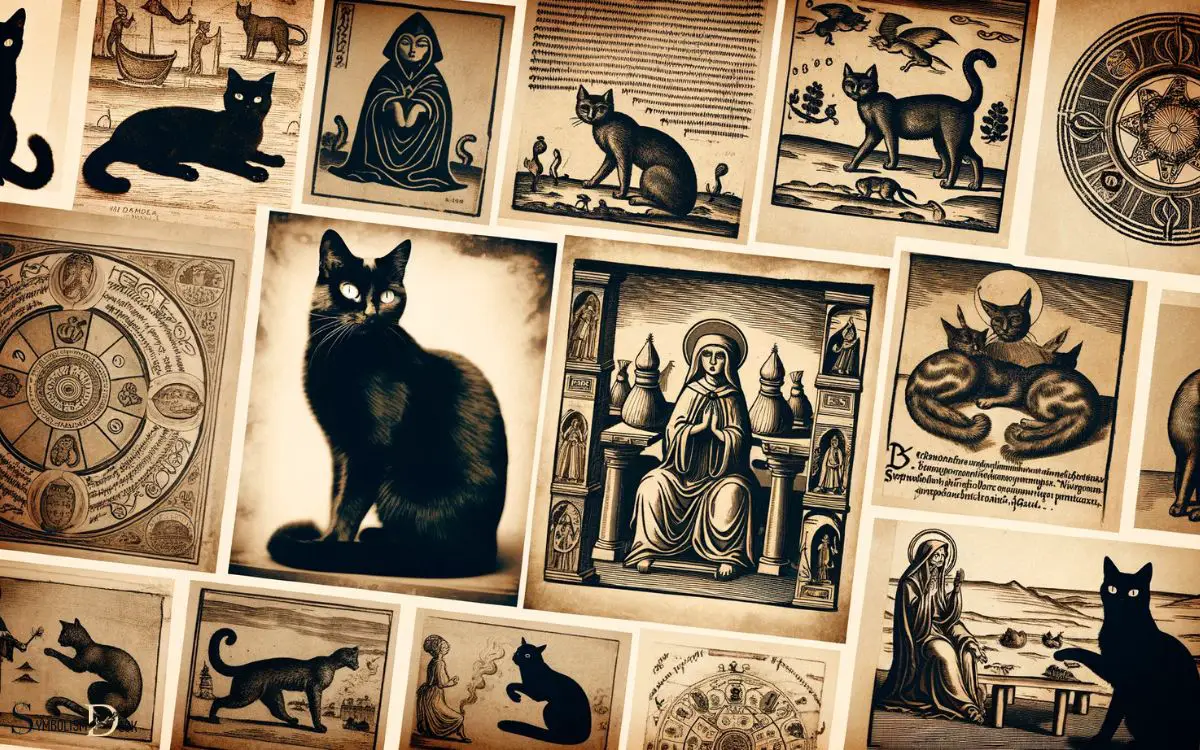
The ancient Egyptians revered black cats as symbols of good luck and protection. These feline creatures held a significant place in Egyptian society, with the goddess Bastet often depicted as a black cat.
Egyptians believed that black cats brought good fortune and safeguarded their homes from evil spirits. As a result, they were highly regarded and even worshipped.
The association between black cats and positive symbolism continued throughout history. In the Middle Ages, they became linked to superstitions and were sometimes viewed as omens of bad luck, particularly in Europe.
However, in many cultures, including Japanese and Scottish, black cats are still considered symbols of good luck and prosperity.
Their historical significance showcases the varying interpretations and cultural significance of black cats over time.
Cultural Beliefs and Superstitions
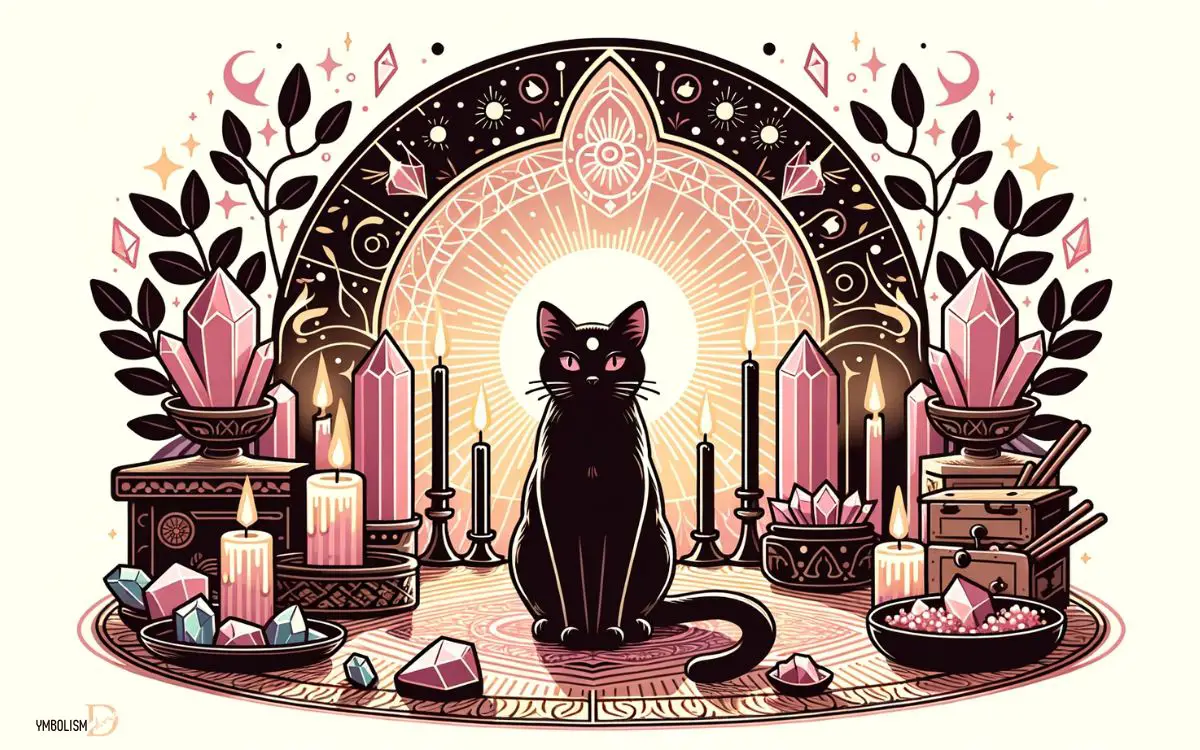
Cultural beliefs and superstitions surrounding black cats have persisted across various societies, reflecting the enduring impact of these enigmatic felines.
- In many cultures, black cats are considered symbols of good luck and prosperity, bringing fortune to those who encounter them.
- In Japan, black cats are particularly revered and believed to bring good luck to single women, enhancing their prospects of finding a romantic partner.
- Conversely, in Western cultures, black cats are often associated with superstitions and omens of bad luck, especially if one crosses your path.
- Some historical beliefs even link black cats to witchcraft and dark magic, perpetuating their mysterious and often misunderstood reputation.
Understanding these cultural beliefs and superstitions provides valuable insight into the complex symbolism and significance of black cats in society. This sets the stage for exploring their portrayal in mythology and folklore.
Black Cats in Mythology and Folklore
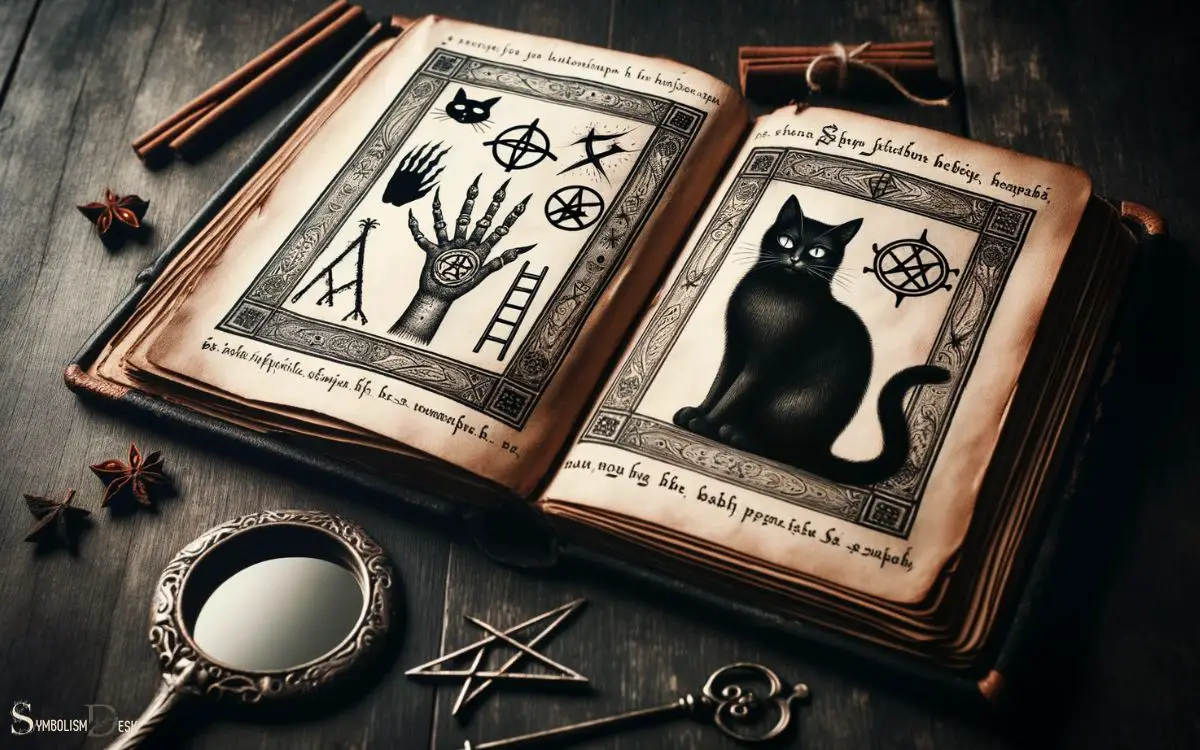
In mythology and folklore, black cats have been featured prominently as symbols of both good and bad luck, often intertwined with supernatural and mystical narratives.
In ancient Egypt, black cats were revered and considered sacred, representing the goddess Bastet and believed to bring blessings and good fortune to their owners.
On the other hand, in European folklore, black cats became associated with witches and were thought to be their companions or even witches themselves in disguise, bringing bad luck and misfortune.
This negative association led to the persecution of black cats during the witch hunts of the Middle Ages.
However, in other cultures such as Japanese and Scottish folklore, black cats are considered as symbols of good luck and prosperity, with tales of benevolent spirit cats bringing blessings to those who encounter them.
Spiritual Symbolism and Associations
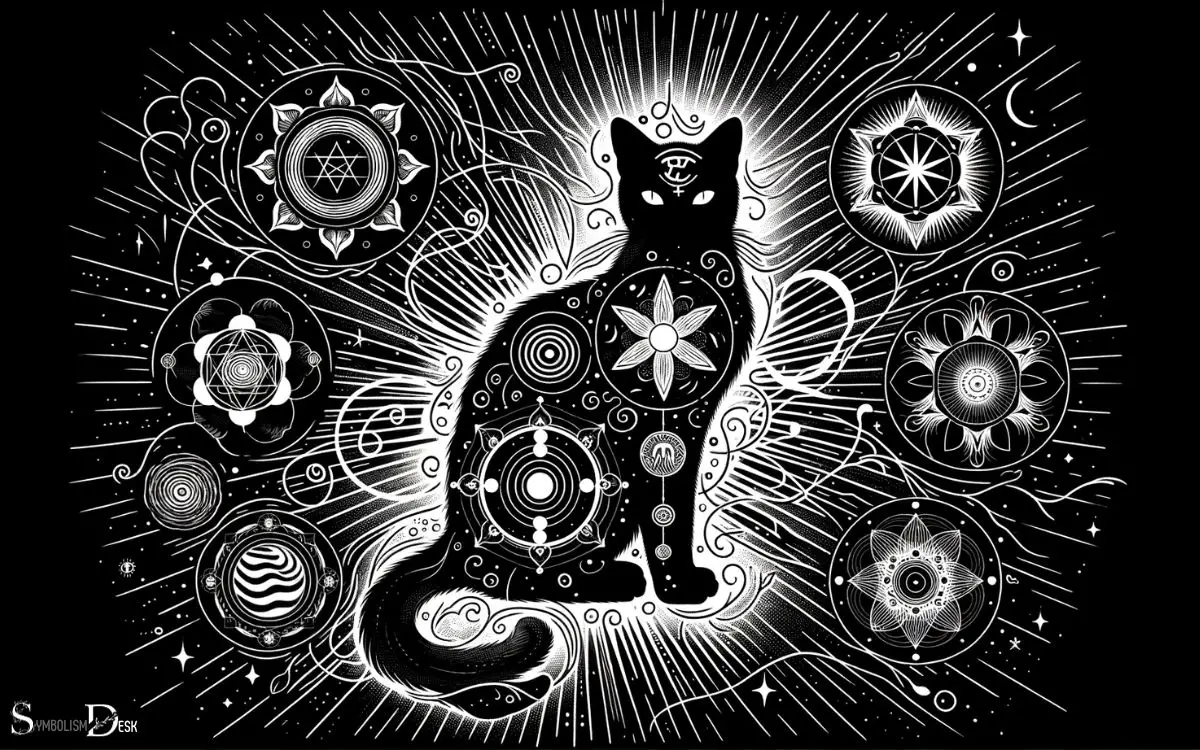
Black cats hold significance in spiritual beliefs and are associated with various symbolic meanings across different cultures and belief systems.
In spiritual symbolism and associations:
- Black cats are often seen as symbols of mystery and the unknown, representing the enigmatic nature of spirituality and the supernatural realm.
- Some spiritual traditions view black cats as protectors against negative energies and evil spirits, attributing them with the ability to ward off malevolent forces.
- In certain belief systems, black cats are considered to be spiritual guides, possessing heightened intuition and an ability to navigate the spiritual world with grace and wisdom.
These symbolic associations contribute to the mystique and allure surrounding black cats in spiritual contexts, shaping their portrayal in various cultural narratives and spiritual practices. Often regarded as enigmatic and otherworldly, black cats are believed to serve as spiritual guides or protectors, further deepening their enigmatic reputation. Similarly, the symbolic meaning of birds, often tied to freedom, transcendence, and messengers of the divine, complements the perception of black cats as harbingers of transformation or connection to unseen realms. Together, these symbols weave a rich tapestry of spiritual significance, emphasizing humanity’s enduring fascination with the mysteries of nature and the metaphysical.
Next, let’s explore the significance of black cats in different cultures.
Black Cats in Different Cultures
Throughout various societies, the presence of the black cat has evoked a wide array of cultural interpretations and representations.
In ancient Egypt, black cats were revered and considered sacred, representing good fortune and protection.
Conversely, in European folklore, black cats became associated with witchcraft and were believed to be companions of witches or even witches themselves.
In Japan, black cats are seen as symbols of good luck and prosperity, particularly the beckoning cat figurine known as ‘Maneki Neko.’
In Celtic mythology, black cats were believed to bring blessings, while in the United Kingdom, they were considered omens of bad luck.
In some parts of Asia, black cats are seen as protective spirits.
These diverse cultural interpretations showcase the black cat’s significance and the varying beliefs surrounding it.
Contemporary Interpretations and Misconceptions
In today’s society, black cats continue to hold a significant place in modern culture, with their symbolism often influenced by superstitions and folklore.
Despite efforts to dispel misconceptions surrounding these felines, they still face challenges in adoption rates and public perception.
Understanding the contemporary interpretations and misconceptions surrounding black cats is crucial in addressing these issues.
Modern Cultural Significance
Despite prevailing superstitions, many people in modern society view black cats as symbols of good luck and companionship. In contemporary culture, black cats are often depicted as mysterious and elegant creatures that bring positive energy into the lives of their owners.
Black cats are embraced as beloved pets and companions, cherished for their unique personalities and affectionate nature.
Many individuals consider black cats as symbols of protection and good fortune, believing that they bring positivity and prosperity into their homes.
In popular media, black cats are frequently portrayed as symbols of magic and mystique, adding an element of intrigue and enchantment to various stories and films.
Black cats are also celebrated in various cultural traditions and festivals, where they’re revered as symbols of good luck and prosperity.
This shift in perception reflects a growing understanding of the positive qualities associated with black cats, dispelling misconceptions and superstitions. However, the enduring influence of superstitions and folklore continues to shape perceptions of black cats in society.
Superstitions and Folklore
The enduring influence of superstitions and folklore continues to shape contemporary perceptions of black cats, perpetuating misconceptions and contributing to their misunderstood reputation.
In modern times, black cats are often associated with bad luck, witchcraft, and Halloween, leading to their portrayal as omens of misfortune. Despite efforts to dispel these beliefs, superstitions surrounding black cats persist.
While some people view them as symbols of protection and good fortune, others remain wary due to ingrained fears.
Misconceptions stemming from folklore have also led to discrimination against black cats, resulting in lower adoption rates and higher euthanasia rates in shelters.
Understanding the origins and contemporary interpretations of these superstitions is crucial in dispelling misconceptions and fostering appreciation for black cats.
Impact on Adoption
Contemporary interpretations and misconceptions about black cats significantly influence their adoption rates and treatment in shelters.
These factors contribute to the following:
- Decreased Adoption Rates: Many people still hold onto the superstition that black cats bring bad luck, leading to lower adoption rates for black cats compared to cats of other colors.
- Discriminatory Treatment: Black cats are sometimes overlooked in shelters, as potential adopters may harbor unfounded fears or beliefs about them.
- Positive Shift in Perception: Efforts by animal shelters and organizations to dispel myths and promote the adoption of black cats have helped improve their public perception and increase their adoption rates.
Understanding these influences is crucial in addressing the challenges faced by black cats in finding loving homes.
Conclusion
The symbolic meaning of a black cat is steeped in history, culture, and superstition. While they’ve been associated with bad luck and witchcraft, black cats also hold positive symbolism in different cultures and spiritual beliefs.
Like a mysterious shadow in the night, the black cat continues to capture our imagination and challenge our perceptions, reminding us that symbols are often shaped by the stories we tell and the beliefs we hold.





